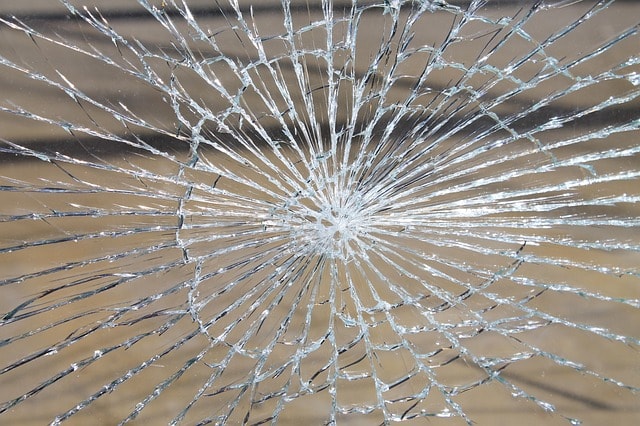Understanding the Difference Between Wrongful Death and Survival Actions

Introduction
When a loved one dies due to the negligence or wrongful act of another party, the surviving family members may have the right to seek legal recourse. Two legal claims that may arise in such situations are wrongful death claims and survival actions. While both types of claims are related to the death of an individual, they serve different purposes and have distinct differences.
This comprehensive guide explores the critical aspects of wrongful death claims and survival actions, including their definitions, the parties involved, the types of damages that can be recovered, and real-life examples.
What is a Wrongful Death Claim?
A wrongful death claim is a civil action brought by the surviving family members of a person who died due to the negligence, recklessness, or intentional wrongdoing of another party. The purpose of a wrongful death claim is to compensate the family members for the losses they have suffered as a result of their loved one’s untimely death.
Who Can File a Wrongful Death Claim?
In most states, the following individuals may be entitled to file a wrongful death claim:
- The deceased person’s spouse
- The deceased person’s children
- The deceased person’s parents
- The personal representative of the deceased person’s estate, on behalf of the surviving family members
What Damages Can Be Recovered in a Wrongful Death Claim?

In a wrongful death claim, the surviving family members may be able to recover various types of damages, including:
- Funeral and burial expenses
- Loss of the deceased person’s expected income and financial support
- Loss of inheritance
- Loss of the deceased person’s love, companionship, guidance, and emotional support
- The surviving family members’ mental anguish and emotional suffering
What is a Survival Action?

On the other hand, a survival action is a legal claim brought by the personal representative of the deceased person’s estate to recover damages that the deceased person would have been able to recover had they survived. In other words, a survival action allows the estate to step into the deceased person’s shoes and pursue the claims they would have had.
What Damages Can Be Recovered in a Survival Action?
In a survival action, the estate may be able to recover damages that the deceased person suffered before their death, including:
- Medical expenses related to the deceased person’s final injury or illness
- Lost wages and income the deceased person would have earned had they survived
- Property damage
- Pain and suffering the deceased person experienced before their death
Real-Life Examples

Example 1: Car Accident Resulting in Death
John is involved in a car accident caused by a negligent driver. He suffers severe injuries and is hospitalized for several weeks before ultimately succumbing to his injuries. John’s wife, Sarah, files a wrongful death claim against the negligent driver, seeking compensation for the loss of John’s financial support, companionship, and the mental anguish she has suffered.
Additionally, John’s estate, through the personal representative, files a survival action to recover the medical expenses and lost wages John incurred before his death.
Example 2: Medical Malpractice Leading to Death
Maria undergoes surgery at a local hospital. Due to a medical error during the procedure, Maria suffers complications and dies a few days later. Maria’s adult children filed a wrongful death lawsuit against the hospital and the surgeon, seeking damages for the loss of their mother’s love, guidance, and financial support.
The personal representative of Maria’s estate also files a survival action to recover the medical expenses and pain and suffering Maria experienced before her death.
The Importance of Seeking Legal Guidance
Navigating the legal complexities of wrongful death claims and survival actions can be challenging, especially while grieving the loss of a loved one. It is essential for surviving family members to seek the guidance of an experienced personal injury attorney who can help them understand their rights and options, gather evidence to support their claims and advocate on their behalf to secure the compensation they deserve.
Related Terms: survival action claims, personal injury claim, pre-death medical expenses, personal injury lawyer, responsible party, personal injury lawsuit, workplace accident, or her injuries,
Frequently Asked Questions (FAQs)

1. What is the statute of limitations for filing a wrongful death claim or survival action?
The statute of limitations, or the legal deadline for filing a claim, varies by state and type of case. In many states, the statute of limitations for wrongful death claims and survival actions is two years from the date of the deceased person’s death. However, it is crucial to consult with an attorney to determine the specific time limits applicable to your case.
2. Can a surviving family member file both a wrongful death claim and a survival action?
Yes, in many cases, surviving family members can file both a wrongful death claim and a survival action. The wrongful death claim seeks compensation for the losses suffered by the family members, while the survival action seeks damages on behalf of the deceased person’s estate.
3. How are damages divided among surviving family members in a wrongful death claim?
The distribution of damages in a wrongful death claim depends on various factors, such as the deceased person’s will, state laws, and the relationship of the surviving family members to the deceased. In some cases, the court may determine the allocation of damages based on each family member’s financial dependence on the deceased or the extent of their emotional loss.
4. What if the deceased person was partially at fault for the accident that led to their death?
In some states, the doctrine of comparative negligence applies to wrongful death claims and survival actions. Under this doctrine, the damages awarded may be reduced by the percentage of fault attributed to the deceased person. For example, if the deceased person were found to be 30% at fault for the accident, the damages awarded would be reduced by 30%.
If This, Then That
- If the deceased person suffered injuries and medical expenses before death, the estate may file a survival action to recover those damages.
- If the surviving family members were financially dependent on the deceased person, then they may seek damages for loss of financial support in a wrongful death claim.
- If the deceased person experienced pain and suffering before their death, the estate may seek compensation for those damages in a survival action.
- If a defective product caused the wrongful death, then the surviving family members may have a claim against the manufacturer.
Did You Know?

- In some states, surviving siblings may be entitled to file a wrongful death claim if there is no surviving spouse, children, or parents.
- Wrongful death claims and survival actions can arise from various situations, including car accidents, medical malpractice, workplace accidents, and defective products.
- In some instances, punitive damages may be awarded in a wrongful death claim if the defendant’s conduct was egregious or reckless.
- Some states have specific laws that govern wrongful death claims and survival actions, such as limitations on the damages that can be recovered or the parties who can file the claim.
Conclusion

The loss of a loved one is a devastating experience, and the legal process of seeking compensation through a wrongful death claim or survival action can be overwhelming. Understanding the differences between these two types of claims and the damages that may be recoverable is essential for surviving family members seeking justice and financial security.
By working with a skilled personal injury attorney, families can navigate the complex legal system, build a strong case, and fight for the compensation they deserve. While no amount of money can ever replace the loss of a loved one, a successful wrongful death claim or survival action can provide a sense of closure and help alleviate the financial burdens that often accompany such a tragedy.
If you have lost a loved one due to the negligence or wrongful act of another party, don’t hesitate to seek the professional guidance and support you need during this difficult time.
Together, we can work to hold the responsible parties accountable and secure the justice and compensation your family deserves.
Related Terms: wrongful death suit, wrongful death lawsuits, loved one’s death, death and survival action, wrongful death case, survival action claim, medical bills, person dies, florida law, or her death













